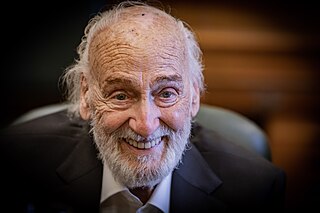
Héctor Benjamín Alterio Onorato is an Argentine theatre, film and television actor, well known both in Argentina and Spain.
Nino Segarra is a Puerto Rican singer, composer, musician and musical arranger.

Leopoldo Dante Tévez, known as Leo Dan, is an Argentine composer and singer born in Villa Atamisqui, Santiago del Estero Province. He recorded more than 20 albums during his long career during the late 20th century between Argentina and Mexico. His appreciation for Mexican music led him to record with mariachis, and from there, he went to international fame. His music was well received by the Mexican public since his voice was a good match to the traditional mariachi sound.
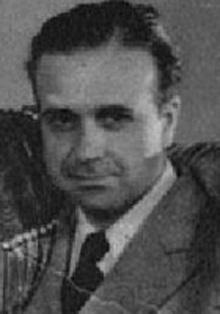
Carlos Francisco Borcosque Sánchez was a Chilean film director and screenwriter involved in the production of the Cinema of Argentina.
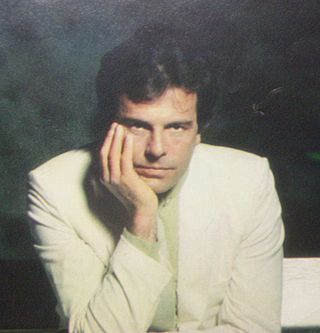
Víctor Laplace is an Argentine film actor.

Miguel Ángel Solá Vehil is an Argentine actor who has made over 60 film appearances in film and TV in Argentina since 1973. He is traditionally typecast in villain roles.

Emilio Disi was an Argentine actor.
Carlos A. Petit was an Argentine screenwriter. He was one of the most prominent screenwriters in the Cinema of Argentina, writing for over 30 films between 1941 and 1984.

Fernando Siro was an Argentine radio, theatre and film actor, director and screenwriter.

Ana María Picchio is an Argentine actress.
Luis Ciges Martínez was a Spanish film actor. He appeared in 140 films between 1958 and 2002. His father was Manuel Ciges.
Amparo Arozamena was a Mexican actress of film and television, best known for her character roles in the 1960s. During the same decade, she became most noted for her role of "Doña Chole" in the Telesistema Mexicano sitcom Los Beverly de Peralvillo (1968–1973). Arozamena had been acting since her early teens and had her first feature film released at the age of thirteen.
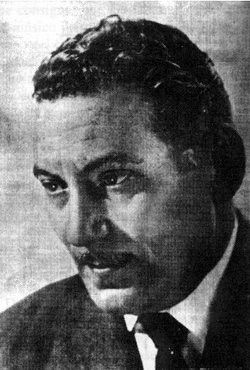
Alberto Amado Ribero, known professionally as Tito Ribero, was an Argentine film score composer, composer, singer, and musician. In addition to having his own orchestra, he provided the film scores to over 200 movies, at his most prolific in the 1950s and 1960s. For Del otro lado del puente he won the Silver Condor Award for Best Original Score from the Argentine Academy of Cinematography Arts and Sciences in 1953.
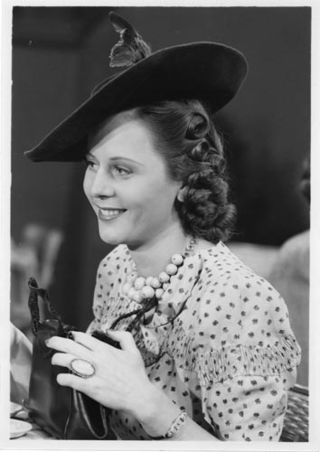
Aída Luz was an Argentine actress who primarily worked during the Golden Age of Argentine Cinema, performing on both stage and in films. She won multiple awards for her performances including the Martín Fierro Awards, the ACE de Oro, the Premios Estrella de Mar and the Golden Condor from the Argentine Film Critics Association.

The 17th Annual Latin Grammy Awards were held on November 17, 2016 at the T-Mobile Arena in Paradise, Nevada.
Ángel InfanteCruz was a popular Mexican actor and singer of the Golden Age of Mexican cinema. He appeared in more than 120 films, 47 of which were great successes. In more than 30 films he appeared alongside his younger brother, the actor and singer Pedro Infante, who died in an aviation accident in 1957. Ángel Infante was known for having visited Cuba on eight occasions, and even having presented his pistols as a gift to Fidel Castro. His daughter is the TV actress Sonia Infante. He appeared in films such as The Two Orphans, Corner Stop, Women's Prison, Here Comes Martin Corona, My General's Women, Full Speed Ahead, What Has That Woman Done to You?, The Atomic Fireman, and Love for Sale.

María Florencia Botto Rota is an Argentine-Spanish actress. In 1978, she moved to Spain with her mother Cristina Rota and her brother Juan Diego Botto, also actors.

Salvador Flores Rivera, also known as Chava Flores, was a Mexican composer and singer of popular and folkloric music. His songs often described the lives of Mexico City's ordinary people.
Edgardo Togni was an Argentine film producer and director who worked in his country from the 1940s to the 1960s and founded the Directores Argentinos Cinematográficos.












